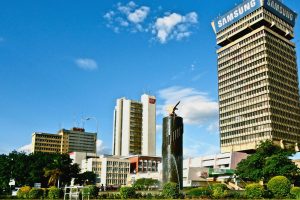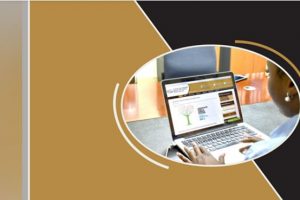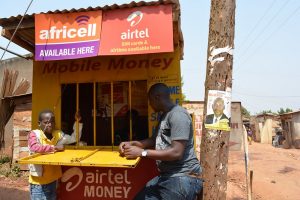The hemp farming business is highly lucrative, but the African hemp market remains underdeveloped due to poor public policy, legal obtacles, the cultural stigma surrounding the plant, and political instability. Even with the majority of African governments illegalizing hemp farming, there are some African countries where it is legal. These countries include Lesotho, Malawi, South Africa, Zimbabwe, Ghana, Uganda, Rwanda, and Zambia.
The UN Commission on Narcotic Drugs (CND) voted in December 2020 to remove marijuana from Schedule IV of the 1961 Single Convention on Narcotic Drugs where it was listed as one of the most dangerous drugs. The decision is expected to highlight the medicinal and therapeutic potential of marijuana as well as drive scientific research into marijuana.
The Industrial Hemp Bill, 2021 will be introduced in the parliament during the current sitting. The objectives of the Bill are to provide for the licensing of cultivation, production, processing, storage, exportation, importation and distribution of industrial hemp; and provide for regulation of research in industrial hemp. The Cannabis Bill, 2021 will also be introduced in the parliament. The Bill will provide for the regulation of the cultivation, production, storage and distribution of cannabis for medicinal, scientific and research purposes.
Hemp Legalization in Zambia
Zambia recently began to embrace hemp growing for its many benefits. eHempHouse Zambia Ltd has made plans to venture into the highly profitable hemp farming business. We interviewed Ruth Henson, CEO at eHempHouse Zambia Ltd, on how to start a lucrative hemp farming business in Zambia.
In December 2019, a special cabinet meeting legalized production and export of hemp for the medical and commercial market. Licensing will be done by the Ministry of Health and the supervision of commercial cultivation will be done by the Zambia National Service. The Africa Cannabis Report estimates that legal hemp industry could be worth more than 7.1 billion USD annually by 2023.
Following the decriminalization of hemp, you may be a farmer interested in growing the plant for its many economic and medicinal benefits. This comprehensive guide on how to grow hemp will help you grow high-quality hemp. You will learn about seed, cannabis clones, planting season, soil preparation, plant spacing, weed control, and many others.
What is eHempHouse Zambia?

eHempHouse Zambia is more than hemp farming business. It is a vision to create a model that will allow every child on the planet to eat nutritiously and where every child can read. At eHempHouse Zambia, we follow natural models and seek solutions in nature rather than opposing it.
eHempHouse belongs to our collective potential, our collective vision of what the world can look like for our children if we bring our best scientists, technology and dreams of what can be together. It is an open-source space for all of humanity. We can design the best of possibilities, implement them, get feedback across all design sectors through measurement and analysis, and make the adjustment to make it better.
As the design is holistic and encompasses the whole system, our strategy calls for a fully-fledged community. We had to include the following in our plan:
- Agriculture. We employ natural systems making sure we do no more harm and regenerate what is not natural anymore or has been damaged by modern agriculture.
- Freshwater. We supply fresh water to our whole community and we make sure we do it through zero waste by incorporating sound management systems.
- Habitat. We are building a smart town with the best building material known to man. The material reduces risk by being fireproof and anti-bacterial and reduces energy needs for cooling in summer and warmth in winter.
- Education. Integrating the community into the classroom and taking the classroom out back into the wider community, a kinesthetic sensory-based learning model. The model replaces repetitive short term memorizing with long term understanding. Our school and the Agricultural Scout movement have clearly defined outcomes as far as essential life skills are concerned based on the skill set that children will need in the coming years about unemployment and climate change.
- Retail and services. The town will sport all the shops and services that a modern town needs. With an industrial and processing park comprising 95 hectares conveniently situated between rail and road, it is geographically well placed for regional, national, and international trade. It will use the raw materials needed for a very diverse range of high-quality end products, foods, cosmetics, beverages and green biodegradable composites for many consumer products. In fact, the whole development will use clean, renewable energy that is carbon negative and produced locally.
- Social structures and safety nets. We are creating a community that will lead to the dignified, productive, inclusive system that is being developed and caters for everyone.
Basically, eHempHouse Zambia is a training and research facility open to all the people in the world who want to make the world a better place for all children’s future. A place where ideas can be actualized and dream nurtured. It is a place where failure is not frowned upon but used as a beautiful learning event that leads to long term success through perseverance and the love of humanity and an incredible planet.
You may be interested to know that these African countries are also considering legalizing hemp.
Please briefly tell us about yourself and your work at eHempHouse Zambia
I have been farming small scale, primarily in livestock for 30 years. Joining eHempHouse allows me to use the many things that I have learnt over the years but not had the opportunity to put effectively into practice. The most important of these are the importance of employee ownership, the superior ability of a team over an individual and the importance of high-value crops for income generation for all participants.
What is the difference between hemp and marijuana?
The difference is primarily the delta-9-tetrahydrocannabinol (THC) content present in both. Marijuana has THC above 0.3% and hemp has THC content below 0.3%. THC is the substance that makes people high when they smoke it.
What are the fees, process and requirements for obtaining a licence for growing hemp in Zambia?
We don’t know yet as government has to publish a statutory instrument (SI) with the conditions of the license and the fees. We hope to get a provisional license to do seed trials and multiplication.
What are the potential benefits of hemp farming in Zambia?
Hemp is a high-value crop with numerous products and by-products. It has enormous potential for income generation and job creation leading to economic development in Zambia. Additionally, hemp farming will attract foreign investors, leading to infrastructural development and new technology to manufacture higher-value goods.
Furthermore, there are several environmental benefits associated with hemp farming. Hemp plants are used as a raw material for wood and paper, thereby conserving forests. Hemp reduces air and soil pollution as it is naturally resistant to pests and it requires very little to no fertilizers for maximum growth. Additionally, hemp absorbs carbon dioxide released into the air preventing it from building up in the air.
Hemp is also essential in soil enrichment. Naturally, hemp crops grow densely and this prevents sunlight from reaching the ground. Consequently, weeds cannot grow where there is no sunlight. Hemp crop roots give nitrogen and other nutrients to the soil, adding to soil fertility.
What is the status of hemp-related legislation in Zambia? Is it legal to grow hemp?
Yes, it is legal. One piece of legislation is pending regarding a legal conflict created by the legal separation of industrial hemp and medical marijuana, which were previously regarded as one crop.
Zambia legalized the cultivation and export of cannabis for the medical market in December 2019. The decision was made after a severe drought in the country, causing massive crop failure.
What are the general challenges that agricultural entrepreneurs should expect to face when venturing into hemp farming (for example, does it require substantial capital, advanced skills/ experience, etc?)
Hemp industry is yet to be fully exploited, which provides a huge opportunity for entrepreneurs. These are hemp-related business ideas for entrepreneurs in countries where its growth and use is legal.
The initial seed is quite costly, though we will reduce this cost with a seed multiplication program. Security and licensing requirements also need capital. Additionally, it takes time to approve the entire hemp farming and production process.
Hemp production is also costly, and farmers will require substantial capital to finance the production processes.
Another general challenge that hemp farmers should expect is the difficulty in finding a market for their products. It is best to find a market before you embark on hemp farming.
Can hemp be grown in all provinces in Zambia?
Yes. Being an annual crop, hemp does well in warm weather and grows best in flat fields with good percolation and a healthy water and nutrients supply.
What technology will you employ in the growing of hemp?
We will do irrigation, soil moisture monitoring, electric fencing, satellite mapping, and the use of drones.
Although established hemp plants are fairly drought resistant, hemp seedlings require irrigation in the early stages of development. Soil moisture monitoring is essential in hemp farming since it is susceptible to flooding and soil compaction, leading to heavy losses.
What kind of hemp products do you intend to introduce into the market? (Both local and international markets)

We intend to produce as many products as we can. Beginning with hemp oil, human and livestock food products from the cake, fiber for clothes, ropes, overalls, shopping bags, paper, chipboard, and hempcrete.
Hempcrete is biocomposite material, a mixture of hemp hurds and lime, sand, which is used as a material for construction and insulation. Hempcrete is easier to work with than traditional lime mixes and acts as an insulator and moisture regulator. It lacks the brittleness of concrete and consequently does not need expansion joints. The result is a lightweight insulating material ideal for most climates as it combines insulation and thermal mass.
How do you see the future of hemp farming in Africa?
The opportunities are immense. As more African nations turn to hemp farming, the industry is set to provide significant financial opportunities that will address poverty and food insecurity in the continent. It will also help to modernize agricultural-based economies across the continent.
What other organic farming activities do you engage in at eHemp Zambia?
We are growing a wide range of organic vegetables (tomatoes, potatoes, cucumber, grape, spinach, Chinese, carrots, baby marrows, onions, lettuce, green beans, cabbage, etc.) We are also growing livestock feed (Lucerne, Leucaena, moringa) and fruit trees (avocado, pawpaw, lemon, orange, naartjie, guava), field crops (maize, sunflower).
Final Thoughts
The number of farmers growing hemp in Africa will continue to increase as more African countries legalize the plant to boost their revenues. Business Ideas for Africa will keep an eye on the future of “green gold” in Africa.
We would like to thank Ruth Henson for speaking with Business Ideas for Africa. We wish her and eHempHouse Zambia all the best.
More Information
- eHempHouse Zambia on Facebook
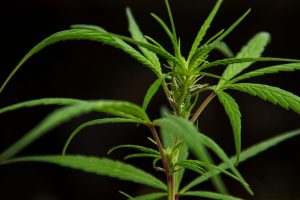
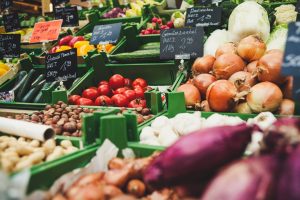
![How to Grow Hemp for Industrial and Medicinal Use [Beginner’s Guide]](https://businessideas4africa.com/wp-content/uploads/2020/11/vpfehvi5ue4-scaled-300x200.jpg)
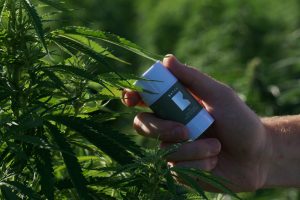
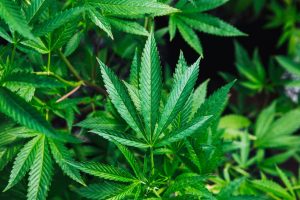
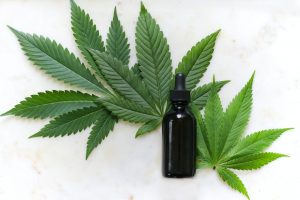
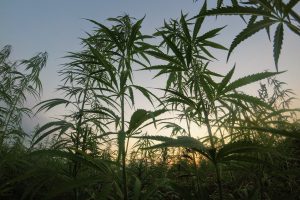
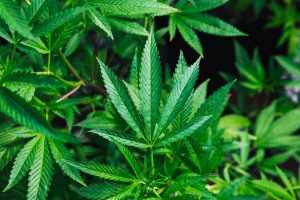

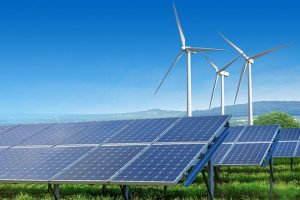
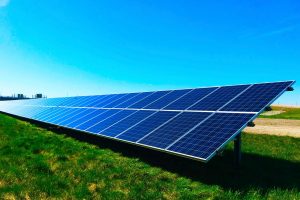

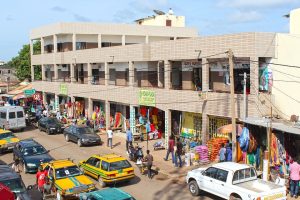
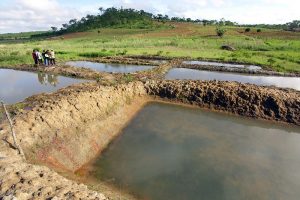
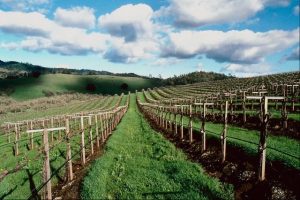
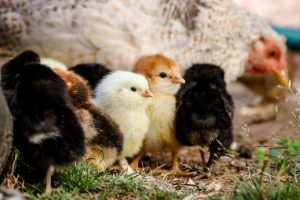
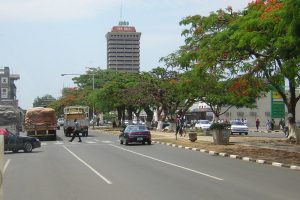
![How to Patent an Idea [Kenya, Tanzania, Ghana, Nigeria, South Africa, Zambia]](https://businessideas4africa.com/wp-content/uploads/2020/11/patent-300x200.jpg)
